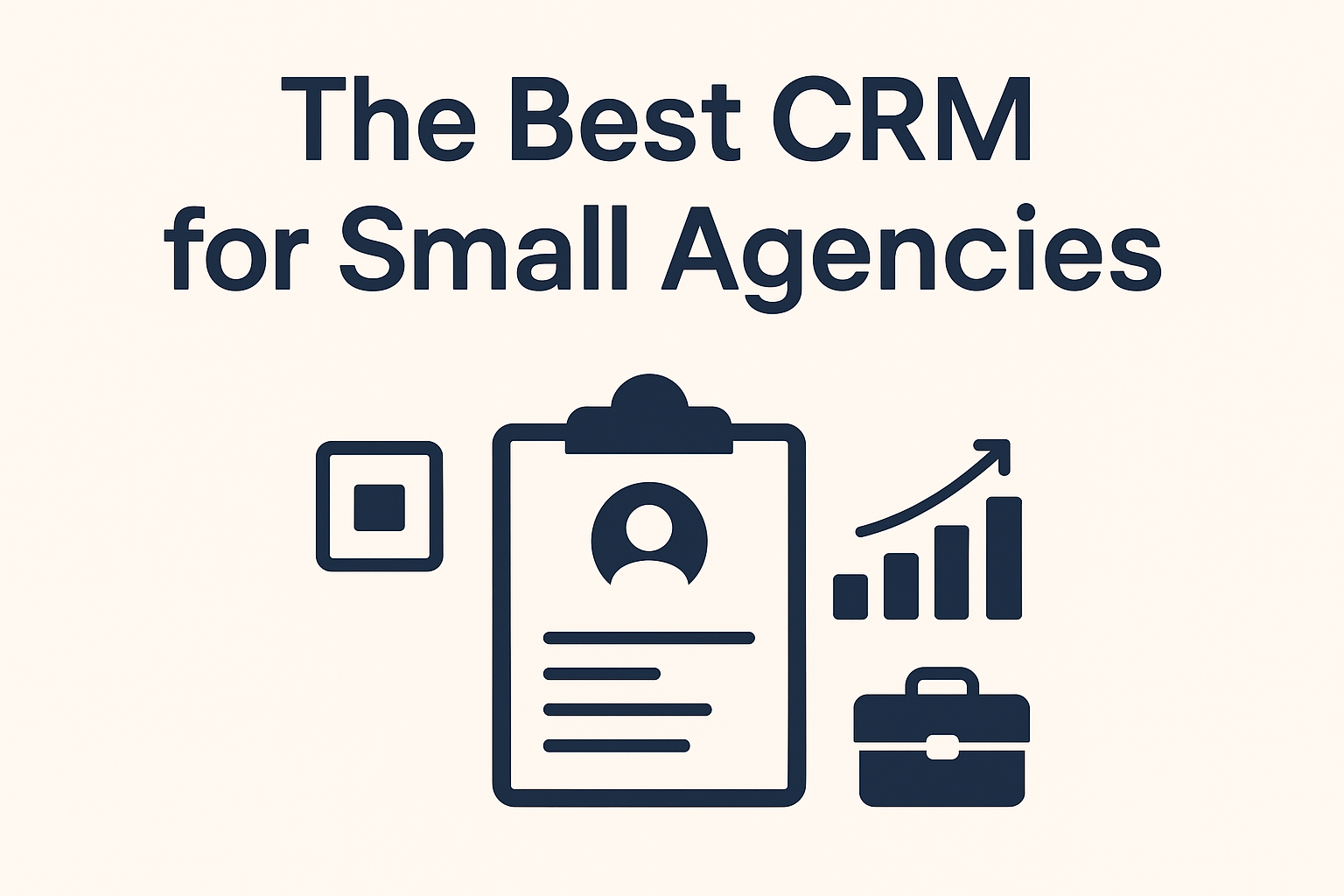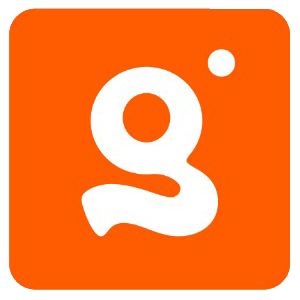This website uses cookies so that we can provide you with the best user experience possible. Cookie information is stored in your browser and performs functions such as recognising you when you return to our website and helping our team to understand which sections of the website you find most interesting and useful.

If you’re running a small recruitment agency, you already know the hustle is real. You’re juggling live roles, sourcing candidates, chasing hiring managers, managing job boards… and probably sending more emails than you’d like to admit.
A CRM system in recruitment should be the thing that makes all of that easier. But let’s be honest, finding the best CRM for small agencies can feel like wading through endless sales demos and over-complicated platforms built for teams ten times your size.
So, let’s simplify the whole thing.
Below, we’ll break down exactly what to look for, where most CRMs go wrong, and which platforms are genuinely built with small recruitment agencies in mind.
What Small Agencies Actually Need from a CRM
Before we look at names, features, or pricing pages, it’s worth asking what small agencies actually need.
Most small teams require a CRM that:
- Saves time, rather than adding admin.
- Keeps your jobs, clients, and candidates in one place.
- Automates repetitive tasks (notes, CV formatting, chasing candidates).
- Is simple to use, not something that takes two weeks of onboarding.
- Doesn’t cost the same as a second employee.
Big agencies have entire ops teams to manage systems. Small agencies need tools that just work.
Where Most CRMs Go Wrong
A lot of CRMs (especially those marketed to recruitment) were originally built for large enterprise workflows. So they can feel heavy, complex, full of features you’ll never touch.
Common issues include:
- Too many screens and clicks to complete basic tasks.
- Overly complex pipeline stages.
- Expensive add-ons you didn’t realise you needed.
- “Training sessions” that turn into a second job.
If the system slows you down, it’s not the right system. And when the wrong CRM is picked, you’ll hear things like:
“The software itself is nightmarishly slow… Getting direct support is nearly impossible.”
That’s what happens when a tool is built for a different size of user than you are.
The Best CRM for Small Agencies: Top Options to Consider
Here are six CRMs worth looking at if you’re a small or growing recruitment agency, focusing on recruitment workflows, and keeping in mind the phrase Best CRM for Small Agencies.
1. Giig Hire: Built by Recruiters, for Small Agencies
Why you should consider it:
- Designed with small recruitment teams in mind, it isn’t a legacy enterprise system pared down.
- Intuitive, plug-and-play interface, get up and running in hours, not weeks.
- Automation built-in: CV formatting, candidate follow-ups, and client pipeline management save hours each week.
- Flexible, Free & affordable pricing: there’s a free-forever plan (good for solo recruiters) and affordable paid tiers for small agencies.
- Combines CRM + ATS + Careers Page in one platform, so you don’t need multiple tools.
- Focused on features that matter to you: unlimited jobs, unlimited candidates under the free plan, simple pipelines, tagging, etc.
- Strong user reviews for ease of use in small agencies as well as highlighting excellent customer support. Trustpilot
Things to watch:
- Some very large agencies may outgrow it eventually, but for small teams of 2–10, it’s perfectly matched.
Why it is a prime contender for the “Best CRM for Small Agencies”:
Because it keeps things simple, relevant, and cost‐effective. If your main drivers are speed, usability, and avoiding complexity, Giig Hire ticks huge boxes.
2. Bullhorn ATS & CRM
Why you should consider it:
- A long-standing, well-known platform in staffing and recruitment; very broad, enterprise-grade features.
- Strong for agencies that plan to scale significantly; handles complex workflows, big databases, integrations.
- Their “small agency/start-up” page shows they expect you may grow, and aim to support you.
Things to watch (especially for a small agency):
- Complexity: Too many features can be a burden when you just want simplicity.
- Cost: You may pay for features you don’t yet need.
- Implementation/Training: It might take longer for you to get up and running.
It can be the right choice, especially if growth is your plan, but for many small agencies, it may be “more than they need” at first.
3. Zoho Recruit
Why you should consider it:
- Cloud-based, well-suited to small teams. It’s specifically mentioned as a choice for “small business recruitment”.
- Broad set of features: job posting, resume parsing, analytics, and integrations.
- Flexible pricing starting low: some free version, paid plans scale as you grow.
Things to watch:
- Because it has so much breadth, you might pick features you don’t use yet (which still adds cost/complexity).
- Setup/Configuration may still require some time to tailor to your agency’s processes.
Good all-rounder if you anticipate growth, have a slightly higher budget, or want more “room to grow” and customisation.
4. Loxo
Why you should consider it:
- Positioned as a “Talent Intelligence Platform / Recruiting CRM + ATS/Outreach” all in one.
- Strong sourcing features: AI or semi-AI candidate matching, outreach tools.
- Good for agencies doing heavy outbound, search, or looking for next-level tools.
Things to watch:
- May be more than you need if you’re focusing on simpler roles/volumes.
- Pricing may escalate if you use the heavy features (sourcing, AI, large database).
- For very small agencies, you may prefer starting lean.
If your niche is search or you want advanced sourcing and automation, Loxo is a serious contender. But evaluate if you’ll use all the power.
5. RecruitCRM
Why you should consider it:
- Bespoke for recruitment agencies (ATS + CRM) and explicitly designed for small-to-mid sized agencies.
- Features include AI sourcing, LinkedIn extension, workflows, job board multiposting.
- Good fit when you want more automation and workflow capability, but still a manageable size.
Things to watch:
- Still some complexity, if you just want basic CRM abilities, might be “feature-rich” for where you are.
- Cost vs ROI: Make sure you use enough of the features to justify cost.
- Onboarding/training: More features mean you’ll need to understand them.
Strong option for the growing small agency, especially if you want automation, sourcing, and are ready to invest.
6. Manatal
Why you should consider it:
- Combines ATS + CRM + AI capabilities (candidate enrichment, recommendations, client pipeline) in one.
- Very accessible pricing for agencies, with a modern interface, good for smaller teams.
- Good “all-in-one” platform if you want a balance of features, cost and usability.
Things to watch:
- While very capable, it might still require you to ensure the system is set up in a way that matches your agency’s process (rather than being generic).
- Ensure support/integration works well in your region (UK/Europe) if relevant.
Excellent mid-tier option that could be the sweet spot for many small agencies wanting more than “basic” but without full enterprise drag.
Choosing the Best CRM for Your Small Agency
So, you now have six credible options. How do you decide which one is the Best CRM for Small Agencies for your business? Here’s a mini-checklist:
1. Start with your key pain-points
- Are you spending hours formatting CVs? Then look for CV automation.
- Is your client’s follow-up missing? Then a CRM with strong client-pipeline activity is vital.
- Are you posting jobs and juggling job boards manually? The job-board integration matters.
2. Test simplicity/speed
- How fast can you get up and running?
- Is it intuitive for you and your team?
- Do you need to spend weeks setting it up (bad) or days/less (good)?
3. Check cost vs growth path
- Starting small but you may grow, does the tool scale without forcing a full migration?
- Are there hidden add-ons or feature-blocks that’ll bite you later?
4. Make sure recruiting workflows are built in
- Candidate profiles, roles, clients, submissions, fee tracking (if you place).
- Automations you’d actually use (e.g., follow-ups, email triggers).
- Data integrity, you want something you’ll use, not fear.
5. Vendor support/community/region
- Especially for small agencies you don’t want to be left waiting for support.
- Look for user reviews (and if possible, regional presence or good remote support).
- Ensure compliance (GDPR, data-hosting) for UK/Europe.
6. Go live quickly, then iterate
- Choose the tool, implement core features, get your pipeline live.
- You don’t need every feature day one, focus on the Best CRM for Small Agencies criteria above.
- Later, refine, tweak, add workflows.
Comparison: Best CRM for Small Agencies
| CRM | Key Features | Ease of Use | Pricing | Best For | Notes |
|---|---|---|---|---|---|
| Giig Hire | CRM + ATS + Careers Page, Automated CV Formatting, Candidate & Client Pipelines | Easy, plug-and-play | Free plan available, Paid plans from £9.99/user/month Flexible, Cancel Anytime | Small agencies wanting flexibility and growth | Built by recruiters for recruiters; great for fast adoption and ROI |
| Bullhorn | Full ATS + CRM, Integrations, Reporting, Workflow Automation | Complex for small teams | From £99/user/month (varies by features) | Large agencies | Powerful but may feel heavy for very small teams; training required |
| Zoho Recruit | ATS + CRM, Resume Parsing, Job Board Posting, Analytics | Moderate | From £16/user/month | Small teams | Broad features but setup can take time; may include unused options |
| Loxo | Recruiting CRM + ATS + Talent Sourcing, AI Matching, Outreach Tools | Moderate | Free plan available, Paid plans from £160/user/month | Agencies wanting a “talent intelligence platform” | Advanced features for sourcing-heavy agencies; pricing can scale fast |
| RecruitCRM | ATS + CRM, AI Sourcing, LinkedIn Integration, Workflow Automation | Easy to moderate | From £65/user/month | Agencies needing automation & workflow customization | Feature-rich but some complexity; good balance for growing teams |
| Manatal | ATS + CRM, AI Candidate Recommendations, Pipeline Management | Easy | From £15/user/month | Agencies wanting modern interface + AI | All-in-one platform; ensure setup aligns with workflow |
Implementation & Adoption: How to Get Value Fast
Because many tools struggle not from features, but from poor adoption. Here’s how you get from “system chosen” to “system driving placements”.
- Step 1: Define your workflow: map out your candidate journey, role to hire, client pipeline.
- Step 2: Choose your tool and set up core fields/pipelines: don’t over-customise day one.
- Step 3: Migrate key data: current clients, current candidates, live jobs.
- Step 4: Train the team: simple sessions, focus on key actions (log contact, update status, place submission).
- Step 5: Automate one workflow: e.g., candidate follow-up email after screening, or client submission tracking.
- Step 6: Measure & iterate: track time-to-hire, placements per recruiter, data entry compliance, user adoption.
- Step 7: Expand features: once core is working, add extra modules (email templates, bulk outreach, LinkedIn extensions).
By focusing on the workflow and adoption rather than chasing every feature, you’ll realise ROI far faster. That’s what the Best CRM for Small Agencies is all about.
Final Thoughts
Choosing a CRM for your recruitment agency is a big decision, but by using the lens of “small agency + real recruiting workflow + ease + cost” you’ll pick a tool that works for you now, and scales as you grow.
Remember: The best CRM for small agencies is the one that you actually use, that makes you more efficient, and that doesn’t become a burden.
